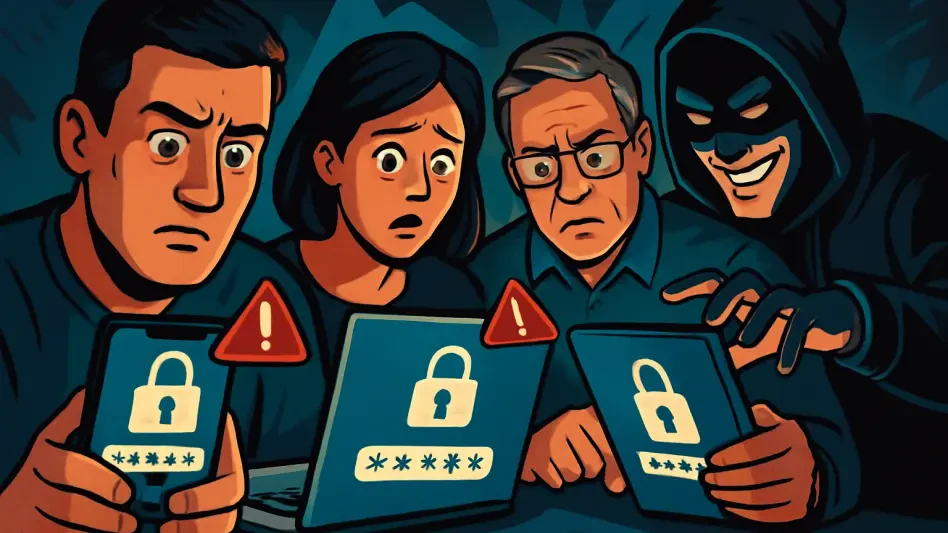Imagine receiving an urgent email from a trusted password manager, warning that your account has been compromised and demanding immediate action to secure your data, a scenario that is becoming all too common as cybercriminals target users of popular tools like LastPass and 1Password with sophisticated phishing scams. These attacks exploit the trust placed in such services, using deceptive tactics to steal sensitive credentials that could unlock a treasure trove of personal information. Recent reports highlight a surge in fraudulent emails designed to create panic, tricking users into revealing login details or clicking on malicious links. Both companies have issued alerts to caution their customers about these threats, emphasizing the need for vigilance. As digital security becomes increasingly critical, understanding the nature of these phishing attempts and the measures being taken to combat them is essential for anyone relying on password managers to safeguard their online identities.
Unveiling the Tactics of Phishing Campaigns
The phishing campaigns targeting LastPass and 1Password users stand out for their cunning use of social engineering to manipulate victims. For LastPass, fraudulent emails often carry alarming subject lines that suggest a security breach, urging recipients to update their app or risk losing access to their vault. These messages originate from deceptive domains that closely mimic legitimate ones, directing users to counterfeit websites designed to harvest login credentials. Meanwhile, 1Password users face highly personalized attacks, sometimes involving attempts to steal secret keys that grant full access to their password vaults. Fake alerts about account compromises further heighten the sense of urgency, pushing individuals to act without verifying the source. The potential fallout from such breaches is immense, as a single compromised password manager account could expose countless logins and sensitive data. Both companies are actively working to shut down these malicious sites and warn users, but the adaptability of cybercriminals continues to pose a significant challenge.
Strengthening Defenses Against Digital Threats
In response to these evolving phishing threats, user awareness emerges as a critical line of defense for those utilizing LastPass and 1Password. Verifying the authenticity of any communication directly through official channels is paramount, as is avoiding interaction with unsolicited links or urgent requests for sensitive information. Recognizing red flags, such as unusual email domains or overly aggressive demands, can prevent falling victim to these scams. Both companies have taken proactive steps, including domain takedowns and public advisories, to mitigate the risks posed by fraudulent campaigns. However, the responsibility also lies with users to stay informed about the latest tactics employed by threat actors. Reflecting on past efforts, it’s clear that while significant strides have been made to counter these attacks, the sophistication of phishing methods demands constant vigilance. Moving forward, fostering a culture of skepticism toward unexpected messages and prioritizing ongoing education will be vital in navigating the complex landscape of digital security.








